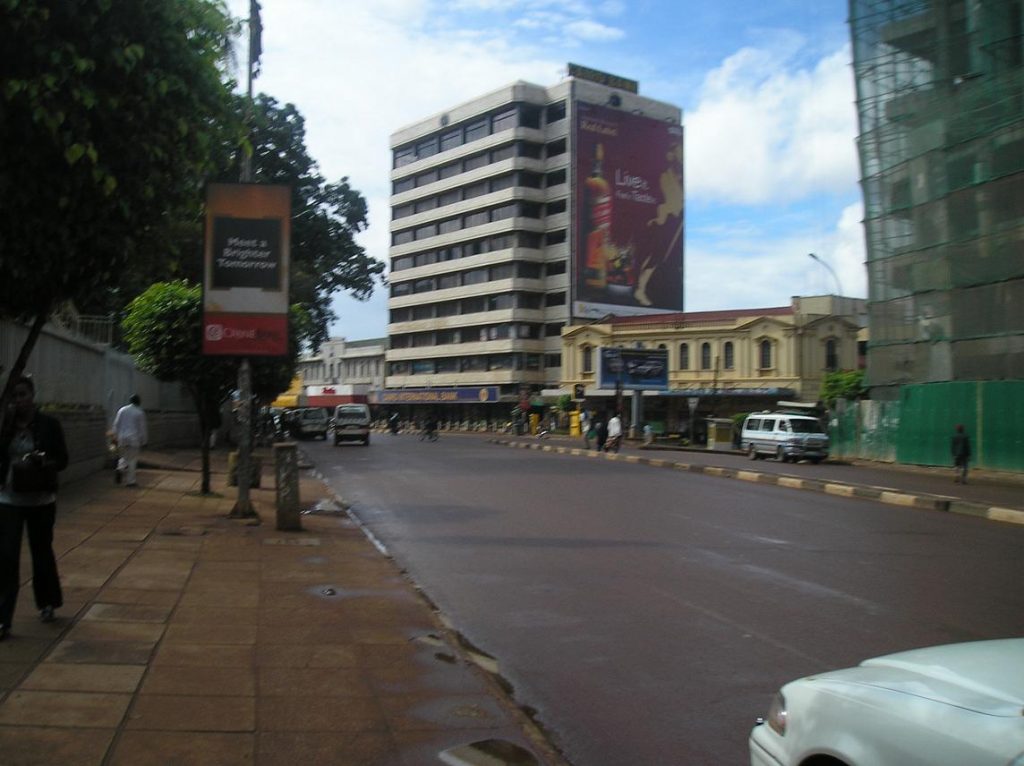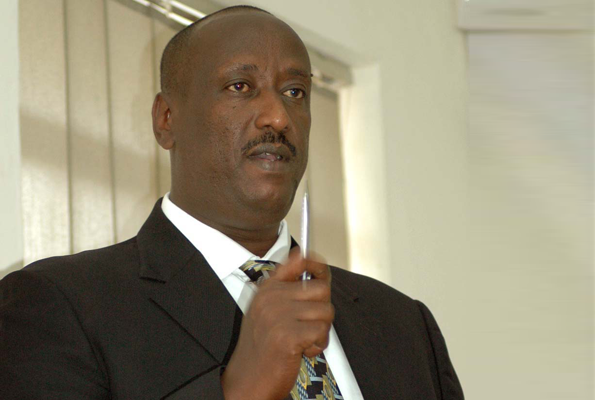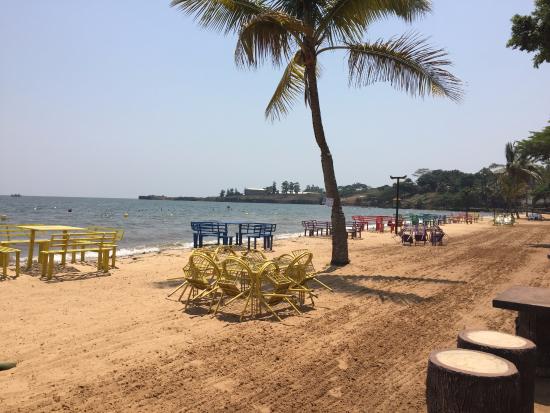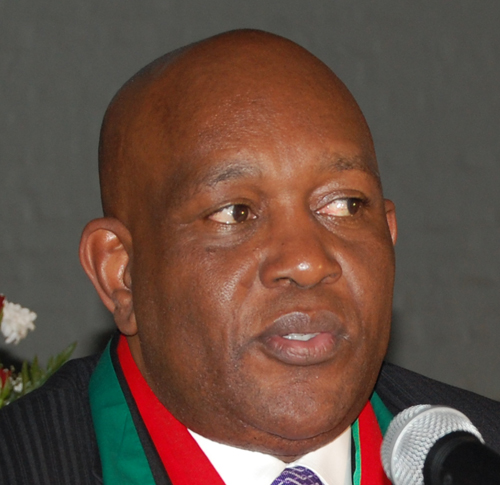Flashback: Dr Kiggundu's court testimony on the closure of Greenland Bank
This week, the Committee on Statutory Authorities and State Enterprises (COSASE) concluded its probe into the closure of seven banks after four months of investigations. One of the banks that whose closure was scrutinised by the MPs is Greenland Bank which was closed controversially on April 1, 1999.
After the closure of the bank, Dr Suleiman Kiggundu, the managing director of the bank, was arrested and later arraigned in court.
As the MPs retreat to compile a final report, we bring you the testimony Dr Kiggundu, tendered before the court as part of our flashback.
Kiggundu, who died in 2008, made this testimony before the court under Criminal Case No 718 of 1999.
-------------------------------
Here is the full testimony.
My name is Suleiman Ibrahim Kiggundu.
I hold a BA (Hons) in Economics from Makerere University, a Master’s of Science in Development Economics from Strathelyde University, a Masters of Arts in Mathematical Economics from Purde University, and a Doctorate in Economics from Boston University.
I specialized in Development Economics and in money and finance in my doctoral studies at Boston University. I am therefore familiar with how money and finance can enhance development.
I have taught Development Economics and Money & Finance as a Lecturer in Economics at Makerere University, Boston College and Boston University, and as an Associate Professor of Economics and Business at the United States International University.
As the Governor of Bank of Uganda, I was the Chief Economic Advisor to the Government and I was in charge of regulating commercial banks and other financial Institutions in Uganda.
As the Managing Director of Greenland Bank, I was blessed with the opportunity of starting a commercial bank in a development context and growing it into a major national and regional financial institution.
I stand here to defend myself against the charges spelt out in criminal case number 718 of 1999. Integrity demands that classified information and dealings with others, especially at the highest level of state, be kept confidential.
After exercising the utmost restraint and silence during the last 3 years, I am forced to reveal such information to defend myself against charges brought against me by those I sought to protect in the best interest of Uganda.
The evidence I am going to give will show that all transactions in counts No.5, 6, 7 and 8 of this case were done with full knowledge of, and without objection by, Bank of Uganda.
I believe that is why Bank of Uganda, which is in charge of regulating banks, is not a complainant in this case and perhaps why the prosecution could not bring the then Governor Bank of Uganda, the late Mr. Charles Kikonyogo, to testify against me.
My evidence will further show that the Government of Uganda at the highest level from His Excellency, the President of Uganda, to his Ministers of Finance and the Head of Privatization Unit had full knowledge of, and consented to, the transactions with Westmont Land (Asia) and those relating to the purchase of UGMCA.
The evidence will also show that all the disbursements referred to in the above criminal case were in respect of very secure investments and constituted little risk of a loss to Greenland Bank. The projects in question were solid, potentially profitable and generated significant employment and other benefits to the Economy of Uganda.
Your Worship, the sequence of events will show that the closure of Greenland Bank and my arrest were politically motivated. Bank of Uganda did not prefer these charges against me. It was the Executive as testified by Mr. Ayisu the CID officer, which preferred the charges.
BACKGROUND
The closure of Greenland Bank and the charges against me were made amidst several false and unfounded allegations.
 The building that used to house Greenland Bank in the 1990s. It is currently occupied by Cairo International Bank.
The building that used to house Greenland Bank in the 1990s. It is currently occupied by Cairo International Bank.
For instance, there were persistent allegations that Greenland Bank was financing ADF rebels and that we were working with Sudan and Sudanese interests against Uganda.
These allegations were based in an article entitled “Uganda Rebels Claim Wealthy Backers”, in which the magazine stated that: “The alleged Greenland connection to ADF may help explain the stormy relationship between the bank and President Yoweri Museveni’s Government. The Uganda Government has long been wary of Greenland because of its association with Sudanese interests. The bank also rankled government when it allegedly held back a consignment of medication worth several million dollars destined for fighters in John Garang’s Sudan Peoples’ Liberation Army. It is thought that only a court injunction may have stopped Museveni’s administration from freezing Greenland’s Central Bank Account. The name of Museveni’s brother Major General Salim Saleh was until recently linked with Greenland bank and its sister company, Greenland Investment, but he and others have now distanced themselves possibly to pre-empt a concerted effort by the Government to rein in the Greenland empire and cut off links to ADF” (Africa Analysis, March 1999).
As if to confirm the importance the Government placed on such allegation, in its report to the select Parliamentary Committee on Privatization wrote that:-
“The committee would like to express fears of possible political infiltration by Sudan through this (Concorp International’s) Economic Involvement with the Greenland Group”.
Other unfounded allegations were that the Greenland Group of Companies borrowed sums in the order of U.Shs.50 billion from Uganda Commercial Bank without security.
In its statement, published on 9th December 2000 in The Monitor after arbitration in London, Mugerwa & Masembe, Advocates and Byamugisha & Rwaheru Advocates, the Government Lawyers in this matter, admitted that these allegations were found to be false. In this statement, the Government Lawyers confirmed that only Ushs. 13.4 billion was lent to Greenland Group of Companies and that these loans were regular and proper.
There were assertions by Government officers and the media that Greenland Bank was soon to be closed following the sudden closure of International Credit Bank, TransAfrica Bank and Trust Bank, all in the month of September 1998. This scared customers and resulted in Capital flight which weakened the Bank.
But the Ernest and Young report of September 1998, which has been filed as evidence in this case, never recommended closure but that Ushs.7.3 billion be injected into Greenland Bank to make up for the non-performing loans and advances.
The Board of Bank of Uganda meeting in November 1998 approved a standby facility of Ushs.10 billion for Greenland Bank to help it contain deposit withdrawals arising from the negative publicity the bank was experiencing as a result of the foregoing allegations; the contagion effect of closing International Credit Bank, Trans Africa Bank and Trust Bank; and specific instruction given to some of Greenland Bank’s depositors by various parties, including donor agencies, to remove their accounts from the bank.
But before this money was disbursed, the Government forced an intervention in the bank.
On 5th December, 1998 Major General Salim Saleh made a false statement to the effect that he had bought UCB, using Greenland Bank.
The Government immediately forced him to resign as Military Advisor to the President.
 Gen Salim Saleh features prominently in Kiggundu's testimony
Gen Salim Saleh features prominently in Kiggundu's testimony
That same evening, armed police were deployed at all branches of Greenland Bank, to effect my dismissal as Managing Director of the Bank of Uganda and Bank of Uganda take over the next day.
On 6th December 1998, I received a letter from Bank of Uganda removing me as the Managing Director of Greenland Bank.
It was also announced that the Bank of Uganda had taken over the management of Greenland Bank.
The Government authorities in Uganda also talked to their counterparts in Tanzania and requested that a similar action be taken against Greenland Bank (Tanzania) Limited, a related but separate Bank incorporated according to the laws of Tanzania.
The fact that Bank of Tanzania complied with this request, knowing that Greenland Bank (Tanzania) had no problems and was financially sound, was another surprise to us.
With effect from 7th December 1998, several C.I.D officers were sent to Greenland Bank (U) to carry out investigations, which lasted more than one month.
No officers were sent to Greenland Investments, the company Major General Salim Saleh had purportedly used to purchase UCB.
This flow of events clearly shows that the UCB incident provided the Executive with a convenient excuse with which to intervene in Greenland Bank (Uganda) and (Tanzania).
The Bank was closed on 1st April 1999.
According to minutes filed in the Judicial Commission of Inquiry into the closure of Banks, there is no evidence of the Board of Bank of Uganda ever having recommended the earlier intervention in, or ensuring closure of, Greenland Bank.
I was arrested and charged on the same day presumably to give the impression that I was the cause of the bank’s closure although I had ceased being, Managing Director four (4) months ago.
After closing the bank, on 6th April, 1999, Bank of Uganda appointed Deloitte & Touche as both auditors and liquidators of Greenland Bank at the same time.
This was irregular because audits are done before decisions to close businesses are made and before liquidators are appointed.
The audit report to be produced by Deloitte and Touche was therefore expected to justify the decision already taken to liquidate the bank. Their report to the commission, however, failed to confirm whether or not the bank was insolvent.
I will now proceed specifically with Counts No.5, 6, 7 and 8 of this case which relate to lending money to these companies in excess of statutory limits without the permission from Bank of Uganda.
PLOT 30, KAMPALA ROAD.
Count No. 5 relates to the disbursement of Ushs.2 billion made towards the construction of the building, on Plot 30 Kampala Road, known as Greenland Towers.
This disbursement, which was known by Bank of Uganda and made using external funds, was made in the hope that the value of the building would be taken as part of Greenland Bank’s share capital.
The Governor was fully informed and even commended the idea of a permanent, high profile home for the bank at the opening ceremony in January 1994.
He did not, however, agree that the value of the building be included as part of the bank’s share capital or assets. After further discussions with Bank of Uganda, it was decided that the ownership of ¾ of the building remain in the names of FIBA (U) Limited.
FIBA (U) Limited gave full Powers of Attorney to Greenland Bank to enable the bank to have full control over this building against the disbursement.
There is no way therefore that Bank of Uganda would have come 4 years later and sanctioned my prosecution in this matter.
Greenland Bank occupied 4 floors and the basement of this building from January 1994 till closure.
The rent for each floor was US$50,000, giving US$200,000 annual rent payment for the 4 floors, excluding the basement.
If Greenland Bank and FIBA (U) Limited reconciled their accounts to take into account over US$1 million in rent due for the 5 years of occupation to December 1998, the disbursement would more than fully be covered.
Furthermore, the building, which had no encumbrances, was valued at Ushs.10billion in 1997.
The valuation report is with Bank of Uganda. Thus, even if the rent reconciliation did not clear this account the bank had full powers of attorney over the building.
FIBA (U) LIMITED
Count No.6 relates to the disbursement of Ushs.4.3 billion to FIBA (U) Limited. This disbursement was made in respect of the purchase of the Uganda Grain Milling Company Limited (“UGMC”) by Greenland Investments.
It was a disbursement made through FIBA (U) Limited to enable Greenland Investments to meet the purchase amount for the UGMC. FIBA (U) Limited acquired shares in Greenland Investments, which it would give up as purchase of shares in UGMC increased or, if necessary, through an International loan.
*In 1996, Major General General Salim Saleh, in the names of Caleb International, won a bid to purchase 51% of the UGMC. When he could not raise the money, His Excellency, the President of Uganda, telephoned me in December 1996 and asked me to help his brother regarding the payment for the UGMC shares.
I told His Excellency that we could lend Major General Salim Saleh the money if the Government guaranteed the loan. He asked me to get in touch with Hon. Mr. Mathew Rukikaire, the then Mr. of State for Finance (Privatization), the next day for further discussions on this matter.
After discussions the next day with the Ministry and Major General Salim Saleh, we agreed that since it was difficult for the Government to guarantee the loan, the Government would allow Caleb International to assign 51% shares in UGCM to Greenland Investments, if Greenland Investments itself was able to raise the money without a Government guarantee.
Major General Salim Saleh agreed that Caleb International would assign its shares to Greenland Investments provided he was given a commission and reimbursed the costs he incurred in preparing and winning the bid. The agreed commission and costs was UShs.800 million. Ushs.300 million would be through Caleb International’s account in Greenland Bank and SHs. 500 Million would go to buying his company shares in Greenland Investments.
Hon. Rukikaire had that morning sent Mr. Keith Mukahanizi and Mr. Leonard Muganwa, the Executive Director of the Privatization Unit, to my office to finalize the arrangements.
Hon. Joash Mayanja Nkangi, the then Minister of Finance issued the 51% shares in UGMC directly in the names of Greenland Investments upon payment of the bid sum to the Privatization Unit.
I informed the Governor, the late Mr. Charles Kikonyogo, of this arrangement before the payment was made to the Privatization Unit for the 51% shares in UGMC.
I also informed him that we were going to use funds mainly mobilized from outside for this transaction and that these funds would be returned to sources as the public bought more shares in Greenland Investments or, if necessary, through an international loan.
The Governor made no objection to this arrangement and said this was acceptable provided Greenland Bank addressed any subsequent liquidity requirements.
Greenland Investments decision to purchase 5% of UGMC was sound. In 1997 UGMC assets were valued at Ushs.17 billion.
This meant that Greenland Investments had bought assets worth about Ushs.9 billion for Ushs.6.3 billion and that the related disbursement of Ushs.4.3 billion was well covered.
As for Greenland Bank, which acted as the intermediary in this arrangement, it had created a big customer in UGMC that would enable it to access over US$12 million per year in revolving credit under the GSM program to support wheat grain imports from the USA.
In development terms, this transaction was sound because it allowed Ugandans to participate in the ownership of a major industry of good value. Greenland Investments had over 7,000 local shareholders.
Through Greenland Investments, these shareholders owned 51% of UGMC, a company that produced wheat flour (Drum), Animal feeds (NUVITA), Bread (TIP TOP) and maize flour (Kob), and employed over 450 Ugandans.
This, in my view, is the way to develop a country with local people participating in major industries. In such instances, institutions like banks would be serving as engines of growth and development.
ENTEBBE RESORT BEACH
Count No.7 relates to the disbursement of Ug.Shs.4.6 billion to Entebbe Resort Beach.
This disbursement was also from a pool of funds mobilized from outside and this information was known to Bank of Uganda, both as bank supervisor and as a joint financier of Entebbe Resort Beach.
Entebbe Resort Beach is on a 25 acre plot with a lake line extending over a kilometer. Entebbe Resort Beach’s developments included 6 permanent buildings, 3 restaurants, a health club, 2 swimming pools, a sauna, a Jacuzzi, a steam bath, an open air cinema, 2 squash courts, 2 large parking areas and a spacious garden.
 Entebbe Resort Beach was part of Greenland Investments. It has since been taken over by Imperial Group of Hotels
Entebbe Resort Beach was part of Greenland Investments. It has since been taken over by Imperial Group of Hotels
The Resort Beach was in the process of completing a 5-Star Hotel that would offer 120 beds in the first phase and 50 others at a later stage.
Negotiations with a South African company to fully furnish the hotel and manage it for the initial 5 years had been completed at the time of the intervention and the closure of Greenland Bank for leisure.
Bank of Uganda was fully aware of Greenland Bank’s Involvement with Entebbe Resort Beach, and it participated in the development of this project by extending over US$700,000 in loans to the project through Greenland Bank under the ITCRF program.
This amount was used to purchase start-up equipment for the hotel, which had already arrived in the country at the time of intervention, included a shuttle bus, 2 pick-ups, a saloon car and all cutlery for the hotel.
The facilities at the Resort were valued at over Ug.Shs.12 billion by the time of the intervention. The registered owners of Entebbe Resort Beach were FIBA (U) Limited and Greenland Bank had a debenture on FIBA (U) Limited.
Therefore there was no likely loss to the bank on account of this disbursement.
With its knowledge and involvement in this project, I see no way that Bank of Uganda would prosecute me unless there were reasons beyond their control. I am therefore not surprised that Bank of Uganda did not prefer charges.
WESTMONT LAND (ASIA) BHD
Count No.8 alleges that Ushs.20.8 billion was lent to Westmont without the consent of Bank of Uganda. I want to state to this court that at the outset that this transaction was made with the full knowledge and consent of both the Ministry of Finance and Bank of Uganda at the highest levels.
While in Nairobi, on my way to Greenland Bank (Tanzania) Limited, I received a telephone call from Major General Salim Saleh. He informed me that if Greenland Investments could find a way of raising US$4 million within two days, Westmont Land (Asia) would assign its 49% shares in UCB to us.
Westmont Land (Asia) Limited (“Westmont”) was finding it difficult to raise $4 million which was due to government by 28th February 1998.
Major General Salim Saleh was proposing to Westmont the same arrangement he had made with Greenland Investments over UGMC in 1996.
I did not know anybody from Westmont but since Major General Salim Saleh a shareholder in Greenland Investments knew them, I trusted his words.
This was an exciting opportunity for Greenland Investments to deliver, once again, on its objective of having Ugandans participate effectively in the privatization of enterprises owned by the Government.
It was also an opportunity for Ugandans to salvage UCB from the foreign hands. Our predecessors had founded UCB to assist indigenous Ugandans in business because they were not getting sympathetic facilitation from foreign banks.
After the telephone conversation with Major General Salim Saleh, I contacted our outside friends who agreed to help us. I cancelled my trip to Dar-es-salaam and immediately returned to Uganda.
The next day on 27th February 1998, we met with Westmont representatives at Major General Salim Saleh’s residence in Mbuya. This meeting was attended by Major General Salim Saleh, Mr. Muhoozi Kainerugaba (the President’s son) and Mr. Charles Mbire and other officers from Greenland Investments and Greenland Bank.
At this meeting, the purchase of 49% shares in UCB was agreed upon and an agreement was signed between Westmont and Greenland Investments. Under this agreement, Westmont agreed to assign its shares to Greenland Investments.
According to the terms of the agreement of sale between the Government and Westmont, no such sale would be made without the consent of Government.
That evening, therefore, Major General Salim Saleh arranged for Mr. Muhoozi Kainerugaba to take the agreement to His Excellency, the President, who was at his Kisozi Ranch at that time, to request for Government consent.
The following day on the 28th February 1998, Major General Salim Saleh and I were invited to meet Hon. Mayanja Nkangi, the Minister of Finance, at his office at 5:00pm.
When we arrived at the office, the Minister was in a meeting in the board room with Mr. Bart Katureebe, the Attorney General, Hon. Mr. Mathew Rukikaire, the Minister of State for Finance (Privatization), Mr. Emmanuel Mutebile, the Permanent Secretary of the Ministry of Finance, and Mr. Leonard Muganwa, the Executive Director of the Privatization Unit. At the end of the meeting, they all came to Hon. Mayanja Nkangi’s office to meet us.
After discussions, it was agreed that we could proceed with the transaction but to keep the matter confidential in order to avoid political controversy.
It was further agreed that formal consent for the sale of Greenland Investments would be given after 3 years as provided for in the agreement of sale between the Government and Westmont.
On the basis of understanding, we arranged for Greenland Investment to pay the US $ 4 million on behalf of Westmont that evening before the close of 28th February 1998.
This was a relief to the Government officials who were getting embarrassed by Westmont’s inability to meet the conditions of sale for the second time. His Excellency, the President, together with top officials from the Ministry of Finance and Bank of Uganda, had visited Malaysia and met with Westmont before the award of the bid.
The Government was thus keen to see Westmont perform to avoid being accused of having selected the wrong bidder.
According to the agreement of sale between the Government and Westmont, the balance of US$ 6 million was to be paid by end of March 1998.
We requested for an extension of date of the final payment from end of March to the end of April 1998. This was granted by the Privatization Unit. A letter to this effect was written the next week.
Fortunately, we managed to mobilize the US$6 million sooner and the payment was made before the end of April 1998.
Following this meeting, the technical teams of Greenland Bank, Greenland Investments and Westmont met and agreed that, to protect the sources of funds and the confidentiality of the arrangement, the deal be documented as “loan to Westmont” with a view of reverting to the sale agreement at the appropriate time.
A “loan agreement” was therefore put in place between Westmont and Greenland Bank, as the intermediary between Westmont and the sources of funds.
This “loan agreement” was to stand side by side with the purchase agreement until the time that the Government could give its consent in writing.
On the payment of the initial US$ 4 million, I gave a full briefing of what had transpired to the Governor, the late Mr. Charles Kikonyogo, and subsequently we had several discussions with him on this issue in his office.
I informed him that we had used funds mostly from outside sources to finance the deal.
These funds would be repaid through the issuance of new shares in Greenland Investments and if necessary by raising an International loan. The Governor consented to this arrangement.
Given the confidential nature of the arrangement, we never committed anything to writing. As the Governor informed the Judicial Commission on the closure of Banks in reference to the proposed memorandum of understanding between Bank of Uganda and Greenland Bank in 1996, the matter was also handled on the basis of gentlemanly understanding whereby a spoken word between gentlemen is as good as a written one.
It was because of this knowledge that when asked by the Minister of State for Finance as to where the funds for the purchase came from, the Governor confirmed in his reply dated 11th April 1998 that the funds were from outside sources.
When the pressure from members of parliament built up, the governor is reported to have told the select committee of Parliament that on privatization that: “Greenland Investment Limited has an arrangement with Westmont Land (Asia) of Malaysia to manage Uganda Commercial Bank Limited. Westmont only manages the bank and does not own a single share.”
There is evidence to show that the funds Westmont used to pay for the shares were sent directly to its account with Greenland Bank. There are no debit entries on Westmont’s account to suggest that Greenland Bank lent its resources to Westmont.
The testimony given to this court by the Manager, Foreign Exchange in Greenland Bank has already confirmed this.
The above arrangement with Westmont was handled at the highest levels of state.
There is no way, Your Worship, we would have chosen to inform the Government first if we had planned to act without the consent of the authorities in this matter.
To do so would have been tantamount to reporting to the police before committing a crime. Neither would we have been so naïve as to mobilize funds from those sources to the tune of over US$14 million for such a venture without the agreement of the authorities.
Your Worship, I want to refer you to pages 18 and 19 of Ernest & Young’s audit report of March 1999, which detailed the various payments made by Westmont under this arrangement.
You will note that these payments were made to various parties, including UShs.913.7 million to Mr. Charles Mbire, Ush.125 million to Caleb International and Ushs. 38.1 million to Mr. Jovia Akandwanaho Saleh.
 Businessman Charles Mbire features prominently in Kiggundu's testimony
Businessman Charles Mbire features prominently in Kiggundu's testimony
Other payments were Ushs. 43.9 million to Lawyer Shonubi Musoke and Ushs. 48.3 million to Price Water house for the services they had provided to Westmont.
All these payments were made on behalf of Westmont to cover its costs and commissions in this transaction.
According to this schedule of payments, there is one payment recorded against my name of Ushs. 5.9 million.
This was paid out against my instructions by our Greenland Forex Bureau (Kenya) Limited in Nairobi to meet air travel and other expenses for Mr. Vijayan of Westmont, who was travelling back to Malaysia.
Your Worship, the late Martin Luther King once said that “the ultimate measure of a man is not where he stands in moments of comfort and convenience, but here he stands at times of challenges and controversy”.
The problem with this deal is that when it became public all the people with whom we worked started distancing themselves from it. The more honourable among them was Hon. Mathew Rukikaire who resigned as Minister of State for Finance, Privatization) to avoid telling lies on this matter.
My arrest and prosecution was just a way for the Government officials and the Head of State to try to distance themselves from the whole arrangement. I hope, however, that this Honourable Court will be able to put the pieces together and judge where the truth lies in this matter and hope justice will prevail.
Finally, I wish to refer you to the “loan agreement” with Westmont, which has been filed as evidence in this case. The terms of the “loan” are spelt out on pages vi and vii of Ernest & Young’s audit report of March 1999.
The share certificate for the 49% shareholding in UCB was deposited with Greenland Bank as equitable security and was not to leave the bank until the loan and the interest were repaid in full.
According to this arrangement, the outstanding amount due from Westmont to Greenland Bank as of today, would be in the region of Ushs.41.3 billion. In this connection, there is a court case between Greenland Bank and Westmont for the repayment of this loan which is not yet resolved.
However, from the proceedings of the arbitration in London between the Government and Westmont, it appears that the Government of Uganda, together with Bank of Uganda, in total disregard of all this is trying to sell these shares to other parties without first recovering the outstanding obligation by Westmont to Greenland Bank.
According to the statement issued by the Government Lawyers following the arbitration in London between the Government and Westmont, Greenland Group of Companies and Westmont were cleared from all the allegations that had previously been made against them regarding the mismanagement of UCB.
Regarding the fraud allegations against Greenland or Westmont; the statement states that:-
“When the claim (against Westmont) was filed, it appeared that Westmont had fraudulently converted UCB’s money for itself or for Greenland Group of Companies. However, claims must be proved. So when we took witness proofs and finally took witness statements for the exchange with the Respondent’s counsel we discovered that the claim for more than US$22 million and for which default judgment mentioned above (Entered in the High Court of Uganda) had already been given could not be substantiated”.
Your Worship, it is clear that the Government was prepared to do anything or say anything at different tunes that would enable it get back the 495 shares in UCB, and that seals my fate.













